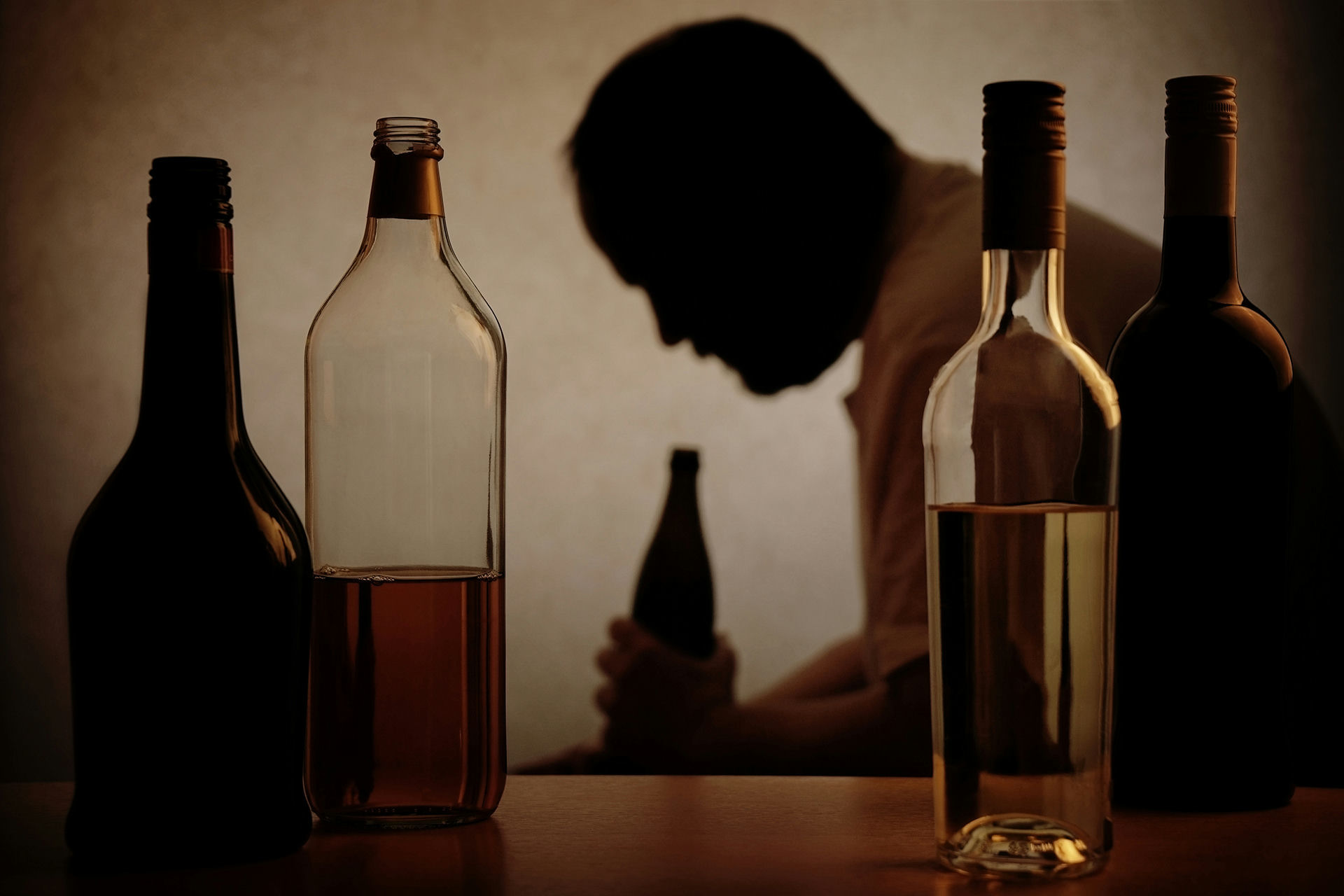Alcohol is an interesting substance because it plays two different roles depending on how much you drink and how it affects your body. Initially, you might think of alcohol as a stimulant because, in small amounts, it can make you feel more lively, social, and energized. You might notice your heart beating faster, your worries fading away, and your confidence rising.
However, this often leads to confusion about the question, “Is alcohol a stimulant or depressant?” The answer is that alcohol is classified as a depressant, even though it can exhibit stimulant-like effects early on during consumption.
In this blog, we’ll clear up some common misconceptions by exploring the differences between stimulants and depressants. We’ll also explain why alcohol is actually considered a depressant, despite its initial stimulating effects, and discuss the signs of alcohol abuse and how Free by the Sea can help those struggling with alcohol addiction in Ocean Park, Washington.
Stimulants vs. Depressants
Jump to Section
To understand alcohol’s effects, it’s essential to distinguish between stimulants and depressants. Stimulants are substances that increase activity in the brain and nervous system, leading to heightened alertness, energy, and a sense of euphoria. Common stimulants include caffeine, nicotine, and amphetamines. These substances increase the release of neurotransmitters like dopamine and norepinephrine, which stimulate brain activity. If you’re struggling with stimulant addiction, we can help you.
On the other hand, depressants are substances that reduce activity in the brain and nervous system. They slow down the body’s functions, leading to relaxation, drowsiness, and a decrease in inhibitions. Depressants include substances like benzodiazepines, barbiturates, and alcohol. These substances typically enhance the activity of the neurotransmitter gamma-aminobutyric acid (GABA), which inhibits brain activity and induces a calming effect. We can assist those struggling with depressant addiction and benzodiazepine addiction in Ocean Park, Washington.
While stimulants and depressants have opposing effects on the brain, it’s crucial to recognize that the impact of any substance can differ depending on the dosage, an individual’s physiology, and the circumstances under which the substance is used.
How Is Alcohol Like a Stimulant?

Although alcohol is classified as a depressant, it can produce stimulant-like effects, particularly in the initial stages of consumption. This is because alcohol affects multiple neurotransmitter systems in the brain, leading to a complex interplay of effects.
In low to moderate doses, alcohol can increase levels of dopamine, a neurotransmitter associated with pleasure and reward. This surge in dopamine can make people feel more confident, talkative, and euphoric—characteristics often associated with stimulants. These effects can lead to increased sociability and a temporary boost in energy, making alcohol seem like a stimulant in the short term.
The environment and social dynamics also shape the stimulating effects of alcohol. In a lively setting, like a party or social gathering, these effects can become more pronounced due to the interaction between alcohol’s impact on the brain and the surrounding external stimuli.
Why Is Alcohol a Depressant?
Despite its initial stimulant-like effects, alcohol is ultimately classified as a depressant due to its primary action on the central nervous system. As alcohol consumption continues, its depressant effects become more dominant. This is largely because alcohol enhances the activity of GABA, the brain’s primary inhibitory neurotransmitter. GABA’s role is to reduce neural activity, leading to feelings of relaxation and calm.
As blood alcohol concentration (BAC) increases, the depressant effects of alcohol become more pronounced. These effects include impaired motor coordination, slowed reaction times, slurred speech, and impaired judgment. At higher levels of consumption, alcohol can lead to severe drowsiness, memory blackouts, and even loss of consciousness. In extreme cases, alcohol poisoning may occur, posing a life-threatening risk.
The depressant effects of alcohol are what make it dangerous when consumed in large quantities or over an extended period. Unlike stimulants, which tend to increase alertness and energy, depressants like alcohol can lead to a dangerous suppression of vital bodily functions, including respiration and heart rate.
What Are Signs of Alcohol Abuse?
Alcohol abuse occurs when an individual consumes alcohol in a way that is harmful to their health, relationships, and overall well-being. Identifying the signs of alcohol abuse is essential for early intervention and treatment. Some common signs include:
Physical Signs
- Frequent Hangovers: Regularly experiencing hangovers, including symptoms like headaches, nausea, and fatigue.
- Poor Coordination: Trouble with balance, coordination, and motor skills, often leading to accidents or falls.
- Slurred Speech: Difficulty speaking clearly or pronouncing words properly.
- Bloodshot Eyes: Consistently red or bloodshot eyes, which can result from frequent alcohol consumption.
- Weight Changes: Noticeable weight gain or loss due to changes in appetite or eating habits.
- Neglected Appearance: Deterioration in personal hygiene or grooming habits.
Behavioral Signs
- Increased Tolerance: Needing to drink more alcohol to achieve the same effects previously felt with smaller amounts.
- Secretive Drinking: Hiding alcohol consumption or lying about the amount of alcohol being consumed.
- Drinking Alone: Preferring to drink alone rather than in social settings, which can be a sign of dependency.
- Neglecting Responsibilities: Failing to meet obligations at work, school, or home due to drinking.
- Legal Problems: Facing legal issues such as DUI arrests or public intoxication charges.
- Risky Behaviors: Engaging in dangerous activities, such as driving while intoxicated or having unprotected sex, while under the influence.
Emotional and Psychological Signs
- Irritability or Mood Swings: Frequent mood changes, irritability, or anger, especially when not drinking.
- Depression or Anxiety: Heightened feelings of depression or anxiety, which may be linked to alcohol use.
- Memory Lapses: Blackouts or difficulty recalling events that happened during drinking.
- Cravings: Strong desire or compulsion to drink, often resulting in prioritizing alcohol over other activities or relationships.
- Guilt or Shame: Feeling guilty or ashamed about drinking habits, yet continuing to drink.
Social Signs
- Isolation: Withdrawing from friends, family, and social activities that don’t involve alcohol.
- Relationship Problems: Frequent conflicts or tension in personal relationships due to alcohol use.
- Loss of Interest: Diminished interest in hobbies or activities that were once enjoyable, replaced by a focus on drinking.
If you or someone you know is exhibiting these signs, it may indicate alcohol abuse or dependence. Early recognition and intervention are key to preventing the escalation of alcohol-related problems.
Free by the Sea Can Assist with Alcohol Addiction in Washington

Alcohol addiction, also known as alcohol use disorder (AUD), is a tough challenge, but you don’t have to face it alone. Many people wonder, is alcohol a stimulant or depressant? It’s important to know that alcohol is a depressant, which can slow down your brain and body, making it even more important to get the right kind of help. That’s where Free by the Sea comes in!
We’re here to support you every step of the way on your journey to recovery. At Free by the Sea in Ocean Park, Washington, we offer personalized treatment programs customized for you. Whether it’s medical detox, addiction therapy, we focus on treating not just the addiction but also the physical, emotional, and psychological aspects that come with it. Plus, we believe in setting you up for long-term success with our aftercare program and relapse prevention, so you have everything you need to stay on the path to sobriety. Contact us today to begin.

Dr. Richard Crabbe joined our team in 2019 as our psychiatrist and medical director. He attended the University of Ghana Medical School where he became a Medical Doctor in 1977. From 1978 through 1984, he was a medical officer in the Ghana Navy and provided a variety of services from general medicine to surgeries. He received his Certificate in General Psychology from the American Board of Psychology and Neurology in 2002.

 August 27th, 2024
August 27th, 2024










